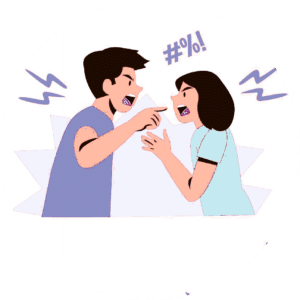What Is Trauma, and How Does Trauma Therapy Work?
This article covers the meaning, symptoms and effects of trauma. It also provides information on what trauma therapy in Singapore can look like, and how it can help. If you or someone you know may benefit from trauma therapy, refer to the profiles of our Therapists who practise trauma-informed therapy below.
What is Trauma: Types, Symptoms, and Effects
What is trauma? Generally speaking, trauma is an emotional and/or physical response to an intensely stressful event. Trauma can arise from events such as the loss of a loved one, an attack on one’s person, or accidents. These are, however, not the only causes of trauma.
Typical triggers of trauma include the loss of control, a sense of betrayal, helplessness or loss, as well as being hurt either physically or emotionally. Because of this subjectiveness, trauma and traumatic situations can vary greatly from individual to individual.
Some examples of traumatic experiences include the following:
- events where the individual felt frightened, threatened, humiliated and/or powerless;
- an event where physical pain or injury was sustained (such as in a car accident);
- war or natural disasters;
- witnessing a death;
- being a victim in an act of terrorism; and
- domestic and/or childhood abuse.

What Are the Types of Trauma?
Trauma can be broken down into three main types depending on the circumstances of the individual:
- acute trauma, whereby a single extremely distressing event leaves a lasting impact on the individual’s mind;
- chronic trauma, where the individual is exposed to multiple traumatic events over a prolonged period of time; and
- complex trauma, which arises from the individual’s exposure to a varied range of traumatic events that are generally situated in the context of an interpersonal relationship.
It should, however, be stressed that exposure to a distressing event does not necessarily guarantee that the experience will result in trauma. Different people may have different reactions when faced with the same event. It is possible that an individual may recover after some time has passed. But if the symptoms of trauma persist, the individual may wish to consider seeking further help such as therapy.
Symptoms of Trauma
Regardless of the type of trauma, the symptoms experienced may consist of some combination of the following:
- Headaches, or other chronic pain
- Having upsetting thoughts about or flashbacks to the traumatising event
- Having problems with falling asleep
- Feeling irritable or prone to bouts of anger
- Problems with concentrating
- Appetite changes
- Rapid heartbeat
- Decreased energy, a sense of fatigue

Symptoms may fade gradually over time as the traumatising event grows distant, but may flare up again in response to painful emotions, memories or triggers such as the anniversary of the event.
Effects of Trauma
Apart from these symptoms, trauma can also affect the brain and its functions.
Generally, when we encounter a stressful or distressing situation, our brains activate the ‘fight or flight’ response. This releases stress hormones such as adrenaline into the body which pushes the brain into survival mode. The stress hormones, however, normally recede once the threat passes, allowing the brain to resume its normal functions.
Survivors of trauma may find themselves being locked inside the events that traumatised them. Memories of the events, as well as flashbacks or nightmares make it difficult for the traumatised brain to differentiate between the threat (which has passed) and the present. Such constant reminders of the traumatic event results in persistently elevated stress hormones. The resultant loop thus keeps their brains locked into survival mode, preventing them from coming to terms with the trauma.
Meet Our Trauma Therapists in Singapore:

Rathi
Trauma Therapist
Rathi specialises in trauma-informed therapies aimed at healing trauma, childhood relational wounds, PTSD, and associated mood disorders.

Stephanie
Trauma Therapist
Stephanie can support individuals and couples facing anxiety (incl social anxiety), self-love, self-esteem and confidence, Autism Spectrum Disorder (ASD), and grief, separation and loss.

Teerousha
Trauma Therapist
Teerousha can help with relationship issues with parents, intergenerational trauma, narcissism, & suicidal ideation.

Aneel
Trauma Therapist
- TYHO Room (Tanjong Pagar)
Aneel can work with individuals facing issues with anxiety (incl social anxiety), intergenerational trauma, financial stress, narcissism, and grief, separation & loss.
How Does One Heal From Trauma? What Is Trauma Therapy?
Trauma therapy seeks to break people out of the aforementioned traumatic loop. This form of therapy aims to create a safe space whereby the individual can address the traumatic events they have faced. It gives them an opportunity to process their traumatic images, work with their emotions, and overcome their anxiety and fears. Trauma therapy also provides the individual with coping strategies to deal with related issues and challenge negative thought patterns which may have arisen because of the trauma.
Most forms of trauma therapy today can be roughly divided into two main approaches: top-down, and bottom-up. Top-down approaches consist of cognitive-based strategies that seek to help the individual become aware of how their traumatic experience has negatively shaped their outlook and perspectives on life, before working to change these thoughts to a healthier alternative.
On the other hand, bottom-up approaches aim to address the way that the traumatic experience is stored and processed in the body. They target the brain’s processing of sensory information from external stimuli to relax the body’s trauma-induced responses, helping the brain to recover from the ‘flight or flight’ state.
By employing professional help, we are not only acknowledging that an issue is weighing us down in some way, but are also working on it to find appropriate solutions.

What Are the Types of Trauma Therapy?
Several types of therapies exist for treating trauma, and an overview of some of them are provided below.
It is important, however, to first note that as the therapeutic journey for each individual is different, what therapeutic approach works best for the individual can also differ greatly from person to person, depending on the issues they face and their responses to the trauma.
In practice, Therapists generally use a combination of different approaches to provide the most effective trauma therapy on the basis of the individual client’s needs.
Cognitive Behavioural Therapy (CBT)
Cognitive Behavioural Therapy (CBT) suggests that our thoughts, emotions, and behaviour all affect each other. A core concept of CBT focuses on the idea that the challenges we face arise from our own thought and belief patterns. As such, reframing our thoughts in a healthier light can reduce the challenges we face. As individuals have different belief systems, these result in different emotions and actions even in similar situations.
When facing trauma, CBT can help by highlighting the negative beliefs held by the individual (eg “I deserved what happened to me because I was a bad person”), and replace them with more encouraging thoughts (eg “Just because a bad event happened to me doesn’t mean that I deserved it or am a bad person”). This helps the individual reframe the trauma they experienced and their position in relation to it.
Trauma-Focused Cognitive Behavioural Therapy (TF-CBT)
TF-CBT was developed for children suffering from Post-Traumatic Stress Disorder (PTSD). It is a therapeutic approach that is targeted both at young children who have experienced trauma, as well as their caretakers who may not have been involved in the triggering event. As young children may have problems understanding their symptoms, why they are experiencing them or the concepts used in common trauma therapies, TF-CBT seeks to cover some these areas where typical trauma therapies may fall short for children.
As a form of cognitive-behavioural therapy (CBT) helps children identify unhealthy behaviour patterns, modify inaccurate beliefs that lead to them and develop healthier ways of responding to triggering stimuli or situations. Additionally, TF-CBT also recognises that the support of the child’s parents or caregivers is essential to the recovery of the child, and that they may also experience considerable distress as a result of their trauma, their child or ward faced (eg thinking that “This happened because I was a bad parent”). As such, TF-CBT also helps parents and caregivers manage their own responses to the event, as well as provide them with ways to better discuss the event with their child.
Eye Movement Desensitisation and Reprocessing (EMDR) Therapy
As a form of therapy that uses rhythmic left-right (bilateral) stimulation, EMDR therapy helps people focus on the traumatic memory in order to reduce the emotional impact of the memory. In doing so, the exposure to the memory helps reduce the individual’s negative response to it, allowing them to move onto the process of healing from the pain they experienced.
Through the use of stimulation sets (eye movements, auditory tones or sensory taps), EMDR helps an individual to clear their mind and discuss any insights, feelings or memories that come to mind when focusing on the traumatic event. Once that is achieved, EMDR will work to strengthen the individual’s positive beliefs about themselves. This process works by breaking any associations that the individual might have between the memory and their physical or emotional symptoms.
Cognitive Processing Therapy (CPT)
Not to be confused with CBT, cognitive-processing therapy is a therapeutic approach designed to treat post-traumatic stress disorder (PTSD). By leading patients to challenge and change their unhelpful trauma-related beliefs, CPT aims to help patients re-conceptualise their perception of the event to reduce its impact on their current life.
Trauma Systems Therapy (TST)
TST was designed for children and adolescents who have gone through traumatising events or live within environments that incur stress or trauma. It is a phase-based treatment programme that aims to tackle and address the trauma system—a combination where a traumatised child or adolescent has difficulty regulating their behaviours and emotions when faced with traumatic reminders, and their caregivers are not able to adequately protect them or help them with their issues.
To go about this, TST looks to stabilise the child’s environment and additionally enhance the child’s ability to regulate their responses when faced with traumatic reminders. TST providers may thus engage both the child by helping them learn healthy coping skills, as well as their caregivers by providing them with skills to help their child manage the trauma.
How Long Does Trauma Therapy Take?

Because of the differing forms of trauma, the unique circumstances of the individual and the therapeutic approach adopted, it’s hard to prescribe a specific timeframe that would apply to all cases.
For example, a person with acute trauma arising from a single event might find it relatively easier to sort through their emotions compared to another who has chronic trauma which arose from a prolonged series of events (eg systematic neglect and abuse throughout their childhood years).
But in general, patients and therapists tend to prefer a system of weekly or bi-weekly sessions over several months to ensure that a more complete remission of symptoms is attained. And while this may seem long, it’s important to remember that therapy is a process of healing. As a result, it may take several sessions before the individual experiences tangible improvements in their situation.
Do I Need Trauma Therapy?
Given the considerable commitment needed to go for trauma therapy, persons experiencing trauma may understandably feel daunted by the financial costs and time involved. Additionally, undergoing trauma therapy often requires the individual to confront the very events that have caused them significant distress. Sharing their traumas with a relative stranger may also be emotionally taxing, especially if this is their first time attempting therapy.
With that said, it’s important to remember that trauma simply doesn’t ‘fade away’ with time. Repressing the trauma and leaving it unsolved may result in the trauma infiltrating the everyday life of the individual, influencing their responses and reactions in all aspects of life.

For example, constant nightmares and changes in mood might cause one to be seen as being irritable or temperamental. This may result in frequent arguments with family and friends. Likewise, a difficulty with trusting others may cause one to come off as aloof and distant, making it difficult for the individual to make and maintain strong relationships. All these can come together to further destabilise the life of the individual, lowering their mental health and result in other co-occurring issues such as depression or PTSD.
How Do I Select the Right Therapist for Trauma Therapy?
As with most client-therapist relationships, a therapist with whom you can feel safe with is essential. This is especially so in the case of trauma therapy, where sharing your traumas may make you feel vulnerable.
Aside from a good rapport, the Therapist should also have the right credentials for helping you work through trauma. These could include certifications in one or several trauma-focused therapy types. Additionally, a trauma-informed therapist should also recognise the potential prevalence of the trauma on your life, and understand that the effects of the trauma may seep into many areas of their life, including your engagement during sessions.
Importantly, a trauma-informed therapist should support your ownership in your therapeutic journey. Rather than adopting a top-down approach where the therapist presumes to know what is best for you, the therapist should instead seek to build a collaborative relationship with you and work actively with you to achieve your therapy goals. By supporting the exercise of your autonomy during the therapeutic journey, the trauma therapist helps you avoid feeling a lack of control and lowers the risk of you being retraumatised.
How Can I Help Someone With Trauma?
At times, we may not know how to respond when our friends or loved ones have gone through a traumatic incident. We may feel overwhelmed by feelings of helplessness, or even afraid that our responses might aggravate the pain that they are experiencing.
In such a situation, here are some tips you can try:
- Offer them support. Make time to be with them and ask them what you can do to support them. Don’t be afraid to back off if they need to have some time to themselves. You may, however, also want to let them know that you will be there to help.
- Listen actively. Listen calmly to what they have to say. At the same time, don’t insist on talking with them about the incident if they aren’t presently willing to. They may need some time and space to work through their thoughts.
- Suspend judgement. Avoid taking their actions or words to heart. Your loved one is experiencing strong emotions and stress, and may have have outbursts from time to time. Understand that they may not mean what they say in the heat of the moment.
Don’t suffer in silence. Take the first step towards regaining control of your life.
Our Trauma Therapists in Singapore:

Abigail
Trauma Therapist
- Multiple Addresses
Abigail specialises in separation, grief and loss, relationship issues, couples counselling, existential issues, trauma, and PTSD.

Zoe
Trauma Therapist
Zoe is able to help individuals and couples facing mood instability, loneliness, life transitions, eating concerns or body image, and childhood trauma / ACE.

Alva
Trauma Therapist
- TYHO Counselling Centre (City Hall)
Alva helps individuals and couples facing mood instability, trauma, relationship issues, Autism Spectrum Disorder (ASD), and Childhood Trauma / ACE.

Diana
Trauma Therapist
- Multiple Addresses
Diana can work with individuals facing unhealthy coping mechanisms, intrusive thoughts, anger management, LGBTQ+ issues, and PTSD.
References:
- https://www.apa.org/topics/trauma
- https://integratedlistening.com/what-is-trauma/
- https://www.mind.org.uk/information-support/types-of-mental-health-problems/trauma/about-trauma/
- https://www.medicinenet.com/what_are_the_3_types_of_trauma/article.htm
- https://www.verywellmind.com/what-is-emotional-lability-5200864
- https://www.medicalnewstoday.com/articles/trauma#symptoms
- https://www.phoenix-society.org/resources/calming-trauma
- https://www.bostontrials.com/how-trauma-changes-the-brain/
- https://pronghornpsych.com/how-emotional-trauma-changes-the-brain/
- https://www.verywellmind.com/trauma-therapy-definition-types-techniques-and-efficacy-5191413
- https://www.healthline.com/health/cognitive-behavioral-therapy#techniques
- https://www.verywellmind.com/trauma-focused-cognitive-behavioral-therapy-2797665
- https://www.verywellmind.com/emdr-for-panic-disorder-2584292
- https://www.fatherly.com/health-science/why-does-therapy-take-so-long-psychologists/
- https://www.talkspace.com/blog/how-long-does-therapy-take-science/
- https://www.cascadebh.com/behavioral/trauma/signs-symptoms-effects/
- https://www.verywellhealth.com/trauma-therapy-5212434
- https://www.ncbi.nlm.nih.gov/books/NBK207195/
- https://traumatherapistnetwork.com/trauma-treatment-modality-series-top-down-and-bottom-up-approach-to-therapy/
- https://www.cebc4cw.org/program/trauma-systems-therapy-tst/detailed
- https://www.betterhealth.vic.gov.au/health/conditionsandtreatments/trauma-helping-family-or-friends
- https://www.medicalnewstoday.com/articles/trauma
- https://www.helpguide.org/articles/ptsd-trauma/coping-with-emotional-and-psychological-trauma.htm
- https://www.healthline.com/health/traumatic-events
- https://bestdaypsych.com/ptsd-examined-the-five-types-of-post-traumatic-stress-disorder/
- https://www.healthhub.sg/a-z/diseases-and-conditions/666/post-traumatic-stress-reactions
- https://www.healthline.com/nutrition/symptoms-of-stress#physical-effects-of-stress

